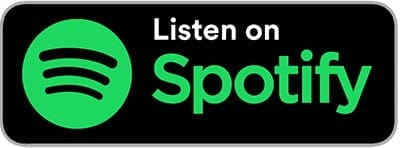As fans mourn the likely loss of Trevor Lawrence, Joe Douglas and the New York Jets continue down the correct path.
Undoubtedly, holding the cards to the 2021 NFL draft would have been the best option. Picking No. 1 in a draft expected to include Trevor Lawrence is the most desirable position.
Anybody suggesting otherwise is looking to rationalize his or her way through the situation. And why not? It’s a scenario the hardened, long-time New York Jets fan has become accustomed to over the years. One might say a bulk of the fan base has become immune to pain.
For those who still feel the jabs and barbs of Jets fandom, it’s OK to mourn the likely loss of your once-beloved blonde savior. Just do not, for one moment, think the Jets screwed up everything for the sake of winning a couple of meaningless games.
The organization is finally on the right track.
For those Jets fans mourning the likely loss of Trevor Lawrence, remember this one thing: Doing the right thing, and conducting your business the right way, trying to win every game no matter the situation, usually works out the in the grand scheme of things. #TakeFlight
— Robby Sabo (@RobbySabo) December 27, 2020
Knocking off the Los Angeles Rams and Cleveland Browns in back-to-back weeks, with a generational quarterback talent ready to be plucked, is something the tired Jet narrative won’t live down. Same Old Jets or Just Endure The Suffering will continue to be posted and echoed in various spots in sports media and beyond. The only thing more fashionable than celebrating a Jets’ “shoot yourself in the foot moment” is hammering the fans directly.
For the fans themselves, it’s “woe is me” all over again. After all, this isn’t their first rodeo.
The 2016 season saw the 4-11 Jets go into Orchard Park, NY to knock off the Buffalo Bills in what everybody called a meaningless Week 17 contest. Finishing 5-11 instead of 4-12 meant the Jets would pick sixth in the draft (instead of fifth).
Rex Ryan’s final season in New Jersey, 2014, saw a 2-11 squad fighting for top draft position with two quarterbacks shooting up the draft board. New York won two of its final three games and selected sixth in the draft, instead of in the top two or three.
Eric Mangini’s 3-12 Jets took on the Kansas City Chiefs in The Meadowlands in 2007 to close out a miserable campaign. A loss would have given them a 3-13 mark and a top-three pick in the 2008 NFL draft.
Herm Edwards‘s final season in New Jersey saw his 3-12 Jets enter the final week with a shot to pick in the top three. A Week 17 win against the Bills placed them in the four-hole.
Following the 2016 season, the Jets selected Jamal Adams sixth overall. A quarterback then-general manager Mike Maccagnan was reportedly interested in, Mitchell Trubisky, was taken second by the Chicago Bears (after a trade). The Chiefs snagged Patrick Mahomes four spots after Adams.
In 2015, Maccagnan drafted Leonard Williams sixth overall. Those two quarterbacks, Jameis Winston and Marcus Mariota, are now backups in the league.
In 2008, Vernon Gholston heard his name called three spots after the Atlanta Falcons tabbed Matt Ryan as their new franchise stud. Had the Jets lost that Week 17 game to the Chiefs, Ryan would have been a Jet.
Nobody’s crying over the Week 17 win in 2016. Adams was a tremendous pick and Mahomes was still ripe for the picking. So was Deshaun Watson. Winston and Mariota certainly aren’t driving Jets fans to an early grave, either.
Missing out on Ryan hurt significantly at the time, especially due to what followed. In a Ryan scenario, Brett Favre never comes to town. The 2008 collapse never happens and neither does Mark Sanchez. Perhaps those are the set of circumstances that don’t allow Rex into the building, something that kicked off the crumbling of a once-tremendous roster. Then again, no Rex might have meant no back-to-back AFC championship game appearances.
The year New York really took control of its football operations saw it select D’Brickashaw Ferguson fourth overall in 2006. Had the Jets lost to the Bills in Week 17 the year prior, perhaps Vince Young or Reggie Bush would have been too tantalizing to pass on.
Perhaps not. That’s the point.
No matter the situation, it always boils down to personnel evaluation and salary cap management. It always comes down to the overall vision the front-office leader puts in place. Imagine the Jets selected No. 2 in 2006. Perhaps Mangini/Tannenbaum still go with Ferguson thanks to their personnel chops.
Besides, the stink of a tanking franchise is something that’s hard to eliminate.
Reputations in the NFL are very real. Each of the 32 organizations owns its own reputation. From that, people are identified and hired on a case-by-case basis. This includes anybody in the building, from office managers to players. The best staff members and free-agent options are had only when a franchise’s reputation is correct.
Bill Belichick has touched on the NFL team that gave him his first real shot many times.
“This is one of those organizations where nobody leaves,” Belichick once said about the Giants. “These are the same people that were here when I was here. The only ones who aren’t here are the ones who died. Other than the coaches, I mean they run them out of there.”
Belichick, a man who’s never grouped with the coziest of personalities, says this about a New York Giants organization that passed on him after Bill Parcells left. George Young and Belichick did not get along, and it led to Belichick heading to Cleveland and Ray Handley as the team’s next head coach. Still, Belichick doesn’t confuse those bitter feelings with an overall environment that has led to sustained success.
Part of the reason Eli Manning chose the Giants was due to the organizational stability and respect. The Manning camp wasn’t in love with then-San Diego Chargers general manager A.J. Smith and head coach Marty Schottenheimer, specifically in how he handled quarterbacks. Choosing a Giants team that had the league’s respect made sense.
Joe Douglas‘s goal is to propel the Jets into the upper-echelon of NFL franchises, not just by how they play on the field but how the league views them as a whole. Winning, no matter the circumstance, helps this cause over the long-haul.
Pittsburgh is another one of these franchises in the upper-echelon. The Steelers won two of their final four games in 2003. After starting 2-6, they finished 6-10 and comfortably selected 11th in 2004. Ben Roethlisberger was the choice, and the rest is history.
Obviously, these teams aren’t limited to just the long-time NFL franchises. We all know what happened to the AFL-founded Patriots shortly after Belichick moved to town. A guy who split time with Drew Henson was selected in the sixth round in 2000. Six rings later, many consider Tom Brady the greatest quarterback of all-time.
Do you know the story of the 2000 Pats? Sitting at 2-8, the Pats were on track to perhaps finish with the league’s worst record. A quarterback named Michael Vick was buzzing at the top of the draft. LaDainian Tomlinson was also mentioned quite a bit. New England won three of its final six games to get to 5-11 and the sixth spot of the draft. Richard Seymour was chosen in the first round, and Matt Light was taken in the second. Under a year later, the franchise is celebrating its first Super Bowl victory.
The Seattle Seahawks, part of the NFL’s expansion efforts in the 1970s, had a long road to haul until they reached the upper-echelon. But it finally happened once they drafted properly. There was no one savior who swooped down with a cape. Sure, Russell Wilson is a significant factor, but his third-round draft status means every team had its shot to snag him.
Seattle brought in the right guys, Pete Carroll and John Schneider. Interestingly, Carroll is another former Jet now leading a respected NFL organization elsewhere. After back-to-back 7-9 seasons that seemingly placed the Seahawks in no man’s land, they finished 11-5 in 2012 on the strength of two-consecutive excellent drafts.
The Giants, Patriots, Seahawks and Chiefs have never tanked. In 2017, many folks thought Dave Gettleman’s Giants were tanking. Starting Geno Smith over Eli Manning will have those opinions fly in from every direction. To see them win in Week 17 sort of flipped that script. In the end, Gettleman chose Saquon Barkley with Josh Allen still on the board.
Not one “once in a lifetime generational prospect” saved any of those organizations. This isn’t the NBA. The nature of basketball lends credence to the idea of a savior. In football, with livelihoods on the line every Sunday, no such idea (that is tanking) exists.
Free agents and sports agents already know the lay of the land. Each player is an independent contractor seeking a place of employment that’ll maximize his ability to the fullest. Only then can he capitalize on his next payday. The mere inkling that an organization is tanking provides second thoughts for both players and coaches. That scenario immediately cuts down on the entire pool to choose from.
One could argue the 2011 Indianapolis Colts tanked for Andrew Luck. Upon further review, the team actually won two of its final three games and nearly missed out on the can’t-miss prospect. Even with Luck, the organization couldn’t capitalize. He was out of the league at age 29.
The 1997 Colts even won two of their final three games en route to Peyton Manning—a name that still rings in the memories of Jets fans worldwide. The guy who could have been a Jet if not for his senior season at Tennessee helped transform an entire franchise. The same can be said for John Elway, who did the same for the Denver Broncos.
Those generational quarterbacks are few and far between, and to go all-in on any one man is a risky proposition. Besides, Elway chose the 2-7 Broncos (strike-shortened 1982 season), who held the four-spot, only because he flat-rejected the Baltimore Colts’ instability (five-straight losing seasons). While the Elway chaos ensued, a gem in Dan Marino was ripe for the picking. The Jets selected Ken O’Brien, a fine pro, but a name that doesn’t compare with the Pittsburgh kid whose reputation was being tarnished as the draft developed.
Marino never won a title, and it took years before the Colts and Broncos figured it out with their respective quarterback.
About 14 months ago, the Miami Dolphins were the laughingstock of the league. Trading away vital young pieces, the Fins sat with an 0-7 record. Tanking for Tua Tagovailoa was the phrase of the moment in South Florida. After knocking off the Jets, they reeled off five wins over their final nine games. Drafting fifth in the 2020 NFL draft, the Fins still wound up with Tua, as Joe Burrow‘s incredible climb to the top cemented things. (Oh yeah, and those dreadful Cincinnati Bengals, who now have an injured Burrow, won their final game of the 2019 season.)
Even the winless 0-16 Cleveland Browns of 2017 can’t claim any one savior swooped down to rescue the franchise. Not until Kevin Stefanski was hired and a proper offensive line was assembled could Baker Mayfield really bust out. And even now, how good is the Oklahoma product? How good is Jared Goff and Carson Wentz, the one-two punch that had football people falling over one another in envy? How good is Sam Darnold?
Hell, the so-called experts even pointed the tank finger at the Jets entering the 2017 campaign. Ridding themselves of over-the-hill players such as David Harris, Eric Decker and Brandon Marshall forced the world to say the Jets were throwing in the towel ahead of a loaded quarterback class. (It was a direct-result of Maccagnan’s irresponsible “aggressive rebuild” in 2015 that set the franchise back years.)
Instead, the Jets played hard for Todd Bowles. Unfortunately, Maccagnan couldn’t pick a player to save his life. Again, similar to Idzik, Maccagnan was not a true football guy. He understood the business and the financial aspects that work around the league’s salary cap, yet nothing of substance was behind the personnel wheel.
Despite the effort, the Jets picked sixth. Now-Pro Bowl quarterback Josh Allen was available, as was Lamar Jackson. Maccagnan traded up to three to snag Darnold, the last great hope and savior the fans have turned to for nearly the last four years.
What’s the point of this muddled nonsense that’s pointing to many instances of draft randomness? It’s that nothing about the NFL can be specifically planned, and the moment a franchise starts to tinker with wins and losses is the moment that organization has lost the plot. Never can one man be the savior, and always must an open mind exist.
Integrity travels a long way in this game and in this league. When Douglas preaches culture, fans predictably roll their eyes, for they’ve heard this before. But culture must be accompanied by the right leadership, the right personnel evaluation and salary cap management the Jets haven’t experienced since the Mangini/Tannenbaum combination.
When the Jets have previously won late games to ruin draft position, the leadership wasn’t in place. The right guys pulling the trigger on talent didn’t exist.
Douglas’s 2020 draft class can already be argued as the Jets’ best draft class since 2006 or 2007. While it’s still entirely too early to dish out official grades, the fact that it can already be argued as an option is telling. A decade of poor drafting has put the Jets in this spot, and no one man will get them out of it—not even Trevor Lawrence.
Instead, it’ll be the details, the integrity-driven aspects of football and executive leadership that pave the way.
The 2020 NFL draft presented Douglas with his first real test. He did the right thing by neglecting the wide receiver hype and focusing on building the infrastructure—one that was ignored for 14 years (the last time the team selected a first-round offensive lineman). His second test came when Jamal Adams become ornery. Without unveiling emotion, Douglas told the world there were no hard feelings and got a haul in return. This season, when asked (in so many words) to throw his head coach under the bus, Douglas told the world that he was part of the solution.
A general manager throwing his current head coach under the bus would equal career and organizational suicide. Badmouthing the team’s former best player as he exits the building would also represent a major hit. Can you imagine what Rex would have said as Adams headed to Seattle? Or, just picture Douglas on camera while negotiating with Darrelle Revis‘s agent in real-time. I sure can’t.
These Jets, under this leadership, are different.
Winning these last two weeks absolutely hurts from a Lawrence perspective. If he’s as good as everybody believes, there’s no arguing that point. But the Jacksonville Jaguars are also facing a similar battle, one whose hole is suddenly deeper thanks to the perception of their recent tanking—whether true or not.
If Lawrence has any concerns over the Jags franchise as a whole, I have an idea where he’d turn. Jets players haven’t given up for a sole moment over the course of the first 15 games. Not even Adam Gase has thrown in the towel, despite probable impending doom. Witnessing such grit and determination in the face of such depression is a special thing in this game.
Sure, point to Rex Ryan saving his job in Week 17 in 2013. Claim that the players never gave up on him. Just make sure you also realize that Rex had no idea what he was doing with personnel and John Idzik wasn’t a football guy. That key ingredient means the world.
Joe Douglas, on the other hand, isn’t just a football guy, he’s a football player. It’s probably the reason the New York Jets continue to do the right things in the face of a decade of horrible drafting, over-the-top media scrutiny and understandable fan frustration that’s built up over decades of mismanagement.
Trevor Lawrence hurts, but the possibilities are still endless, courtesy of an organization that’s not taking shortcuts for the first time in forever.





